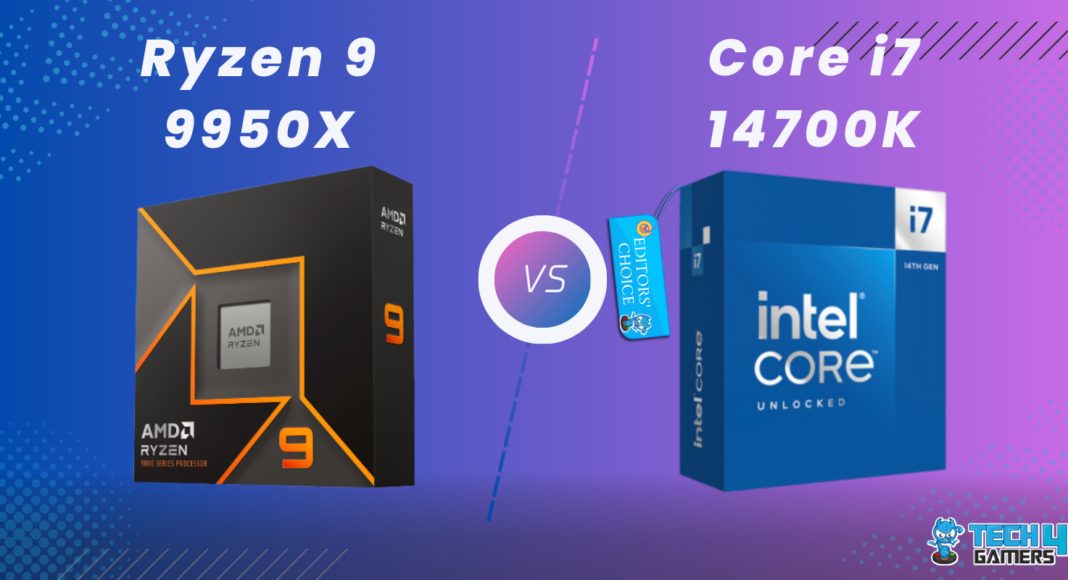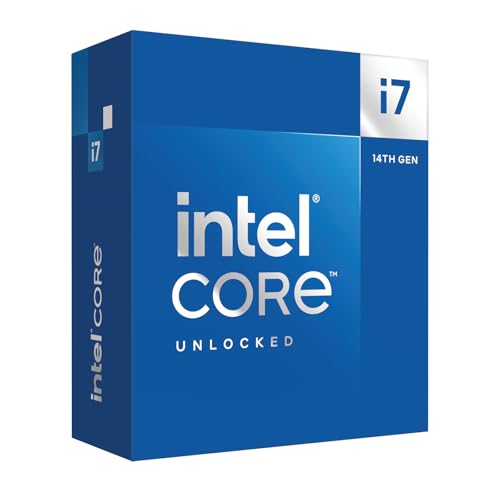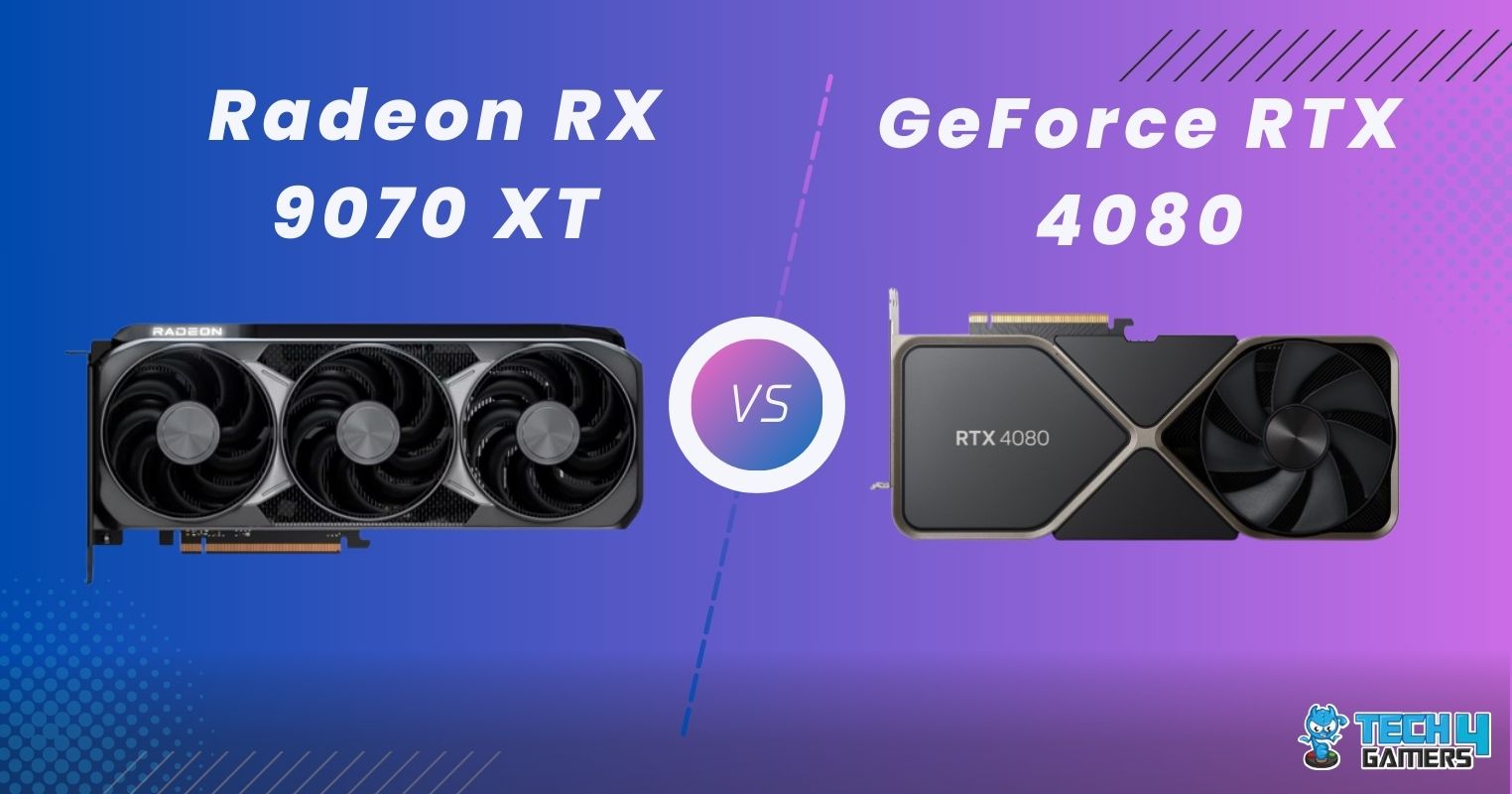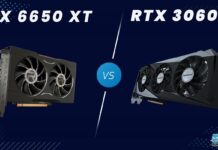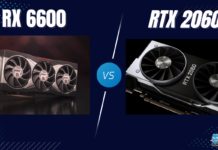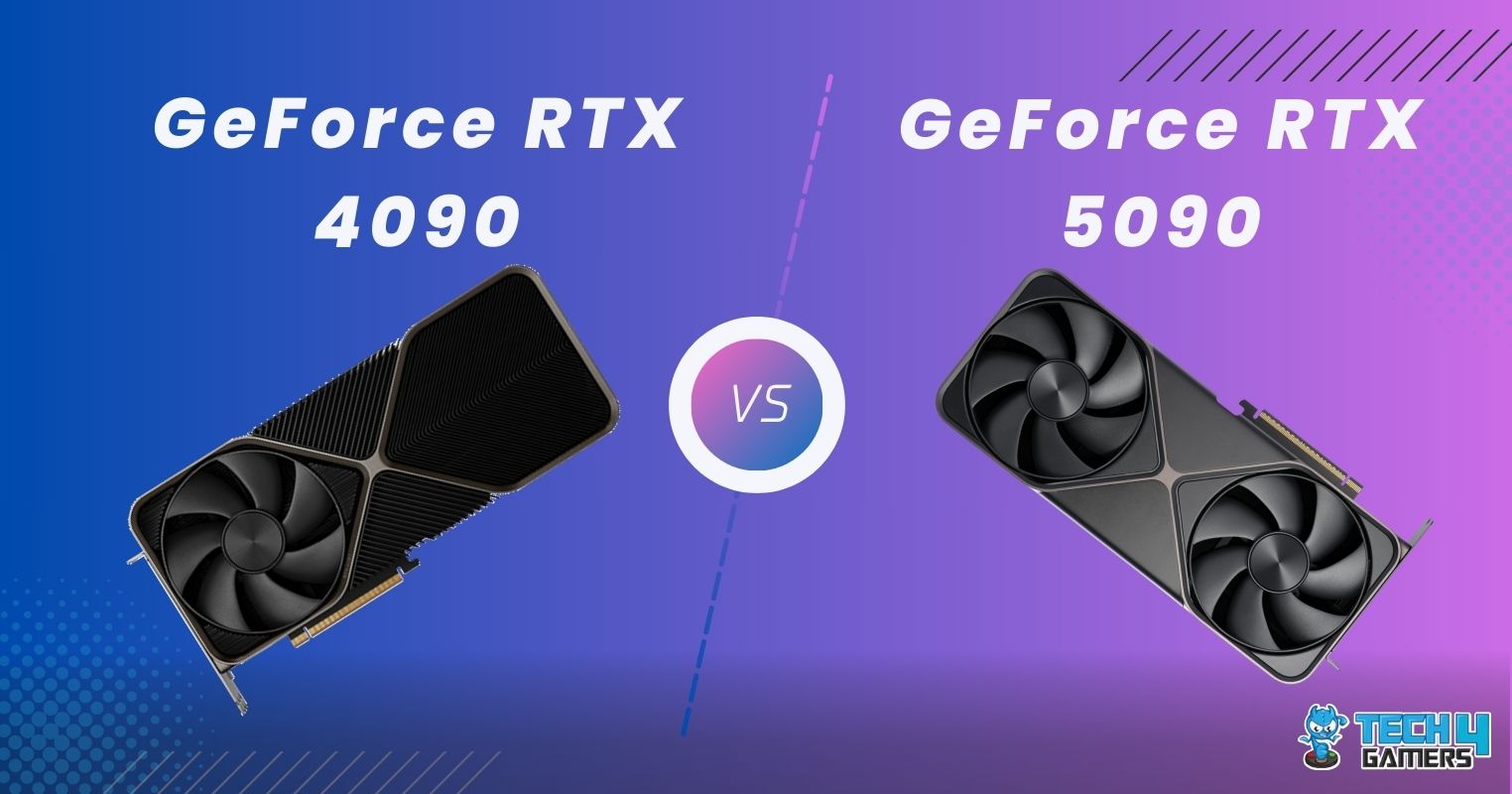Ryzen 9 9950X Rated: 6.5/10 Core i7-14700K Rated: 8.5/10
Pros And Cons
| CPU | Pros | Cons |
|---|---|---|
| Ryzen 9 9950X | ✅ Slightly better in terms of performance ✅ Larger L3 cache size | ❌ More expensive |
| Core i7 14700K | ✅ Has 4 more physical cores ✅ Much cheaper | ❌ Slightly worse in terms of performance |
Comparison Table
Architectural Difference
- Core Count: The Core i7-14700K has 20 cores comprising efficiency and performance, totalling 28 threads. In contrast, the 9950X only has 16 cores, totalling 32 cores.
- Clock Speed: The 14700K’s performance cores have a base clock of 3.4GHz, and their boost frequency goes up to 5.6GHz. In contrast, the 9950X has a base clock of 4.3GHz, which boosts to 5.7GHz.
- Process Node: The 9950X is built on top of a 4nm manufacturing process, whereas the 14700K sticks to a much older 10nm process node.
- L3 Cache: The Intel chip’s L3 cache size is 33 megabytes, whereas the 9950X doubles it to 64 megabytes.
- TDP: The 14700K has a PL1 of 125 watts and a PL2 of 253 watts, whereas the 9950X has a TDP of 170 watts.
The new releases from AMD have proved to be underwhelming compared to the competition. To check out Intel’s limits, we have pinned the Ryzen 9 9950X vs Core i7-14700K, which also shows how well the new AMD chip performs in games.
Gaming Benchmarks – 1440p
To make these tests more realistic to the resolution people buying these chips will game at, we decided to run these tests at 1440p. All the equipment we used to construct the test bench is written below:
Test Bench
- OS – Windows 11
- RAM – V-Color Manta XPrism RGB DDR5 7200MHz 32GB RAM
- CPU Cooler – ARCTIC Liquid Freezer II 240 A
- Graphics Card – GIGABYTE RTX 4090 Gaming OC 24G
- SSD – CORSAIR MP700 PRO 2TB
- Power Supply – ENERMAX REVOLUTION D.F. X 1050W
Cyberpunk 2077

- We observed that the 9950X’s average framerate was around 121 FPS, while the 14700K ran slightly slower, at about 1.7% less, averaging 119 FPS.
- When testing Cyberpunk 2077, we noticed the 1% lows on the Intel chip were around 89 FPS, whereas the 9950X averaged 82 FPS. This puts the 14700K ahead by 8.5%.
Assassin’s Creed Valhalla

- AMD’s chip was ahead by around 9% in our test of AC Valhalla, supporting a framerate of 120 FPS, while the 14700K had an average framerate of 110 FPS.
- The 1% lows also favoured the 9950X, which hovered around 88 FPS, 7% higher than the 14700K, which hovered around 82 FPS.
Red Dead Redemption 2

- The average framerate of the 9950X in RDR2 was around 134 FPS, which was around 4.5% lower than the 140 FPS average we measured from the 14700K.
- The 9950X’s minimum framerate was around 82 FPS, which was 3.6% lower than the 14700K’s low of 85 FPS.
Watch Dogs Legion

- Watch Dogs had an average framerate of 125 FPS on the 14700K, whereas the 9950X averaged 121 FPS in our tests, around 3.3% behind the Intel CPU.
- The 9950X swung back with slightly better 1% lows at 107 FPS compared to the 14700K’s 101 FPS, which was around 6% lower.
Horizon Zero Dawn

- In our test of Horizon Zero Dawn, the 9950X had an average framerate of 157 FPS, whereas the 14700K was only 1.2% behind, with an average framerate of 155 FPS.
- The 1% lows were slightly higher on the 14700K at around 114 FPS, whereas the 14700K had lows of around 109 FPS.
God Of War

- Finally, our last test showed the 9950X’s average framerate of around 131 FPS, whereas the 14700K was around 7.3% behind, with an average framerate of 122 FPS.
- The 1% lows were around 121 FPS on the 9950X in this game, which was around 6.1% better than the 114 FPS that the Core i7-14700K rendered in our tests.
Overall Gaming Performance
Average Framerate
Considering the overall gaming performance of these chips, the Ryzen 9 9950X is only 1.68% ahead of the lower-tiered Intel processor, which is a disappointing result.
Game-to-game performance varied, with the Ryzen pulling ahead in some games while the Core i7-14700K fought back with leads in others.
1% Lows
The difference was even smaller when we isolated the 1% lows in our testing, with the Ryzen being ahead by only 0.68% on average, making performance functionally identical on both chips.
Though the Ryzen performed better than the 14700K, it was not by much. If you swapped between these chips with no FPS counter, you’d be hard-pressed to notice much of a difference between the two.
This comparison pinned the 14700K against a much higher-tiered CPU. If you want to see how the 14700K compares to a much cheaper chip than itself, designed for gaming by AMD, check out our i7-14700K Vs Ryzen 7 5800X3D comparison! – Uzair Qureshi
Power Consumption
| Game | Ryzen 9 9950X | Core i7 14700K |
|---|---|---|
| Cyberpunk 2077 | 223 | 284 |
| Assassin's Creed Valhalla | 220 | 281 |
| Red Dead Redemption 2 | 219 | 282 |
| Watch Dogs Legion | 221 | 280 |
| Horizon Zero Dawn | 224 | 279 |
| God Of War | 217 | 283 |
| Average Power Draw | 220.67⚡ | 281.5⚡ |
| Winner: AMD Ryzen 9 9950X | ||
On average, the Core i7-14700K used around 27% more power than the Ryzen. However, we conducted these tests with the power limit removed from both processors, meaning they could use all the power they wanted from the wall.
Thermal Performance
Game Ryzen 9 9950X i7 14700K
Cyberpunk 2077 84 83
Assassin's Creed Valhalla 75 74
Red Dead Redemption 2 72 74
Watch Dogs Legion 73 68
Horizon Zero Dawn 76 72
God Of War 70 72
Average Temperature 64.42🌡️ 63.42🌡️
Winner: Core i7 14700K
The thermals between these chips were virtually identical in our testing, with the Core i7-14700K being slightly cooler. Still, the difference between these temperatures is not a concern, and you can push these CPUs a similar amount because of their identical thermal headroom.
Price
| CPU | Launch MSRP | Current Price |
|---|---|---|
| Ryzen 9 9950X | 💲649 | 💲649 |
| Core i7 14700K | 💲549 | 💲319 |
| Price Difference | 18% | 103% |
Being a newer and higher-tiered processor, the Ryzen 9 9950X is over twice as expensive as the Core i7-14700K. The meagre improvement in performance makes it very hard to justify this huge difference in price, which brings us to our next section.
What We Recommend
Ryzen 9 9950X: With all the improvements that AMD made over Intel’s latest and greatest on paper, the 9950X disappoints when it comes to real-world performance. It barely bests the Core i7-14700K while costing much more, though it has better power efficiency.
Core i7-14700K: Intel sadly does take the cake here, with its performance being almost as good as the highest-end Ryzen chip available. Though we still have hope for the upcoming Ryzen 9000X3D processors, as it stands, Zen 5 is bested by Meteor Lake.
As I hope this point has made clear, the comparison of the Ryzen 9 9950X vs Core i7-14700K for strictly gaming tests is one-sided. The 14700K performs just as well while costing a whole lot less.
Yes, both the 14700K and the 9950X can be overclocked out of the box. FAQs
More From Core i7-14700K
Thank you! Please share your positive feedback. 🔋
How could we improve this post? Please Help us. 😔
[Comparisons Specialist]
I’m a passionate computer hardware expert specializing in CPUs and GPUs. With a lifelong curiosity for hardware and extensive hands-on experience, I provide valuable insights, practical advice, and in-depth analysis on these components. Engaging with the hardware community, I exchange knowledge and stay at the forefront of technological advancements.
Get In Touch: uzair@tech4gamers.com


